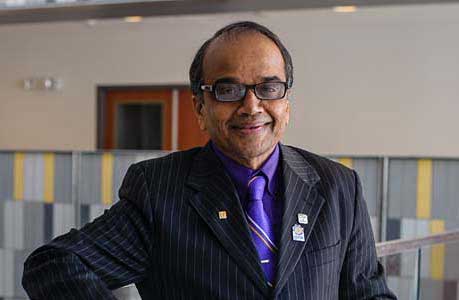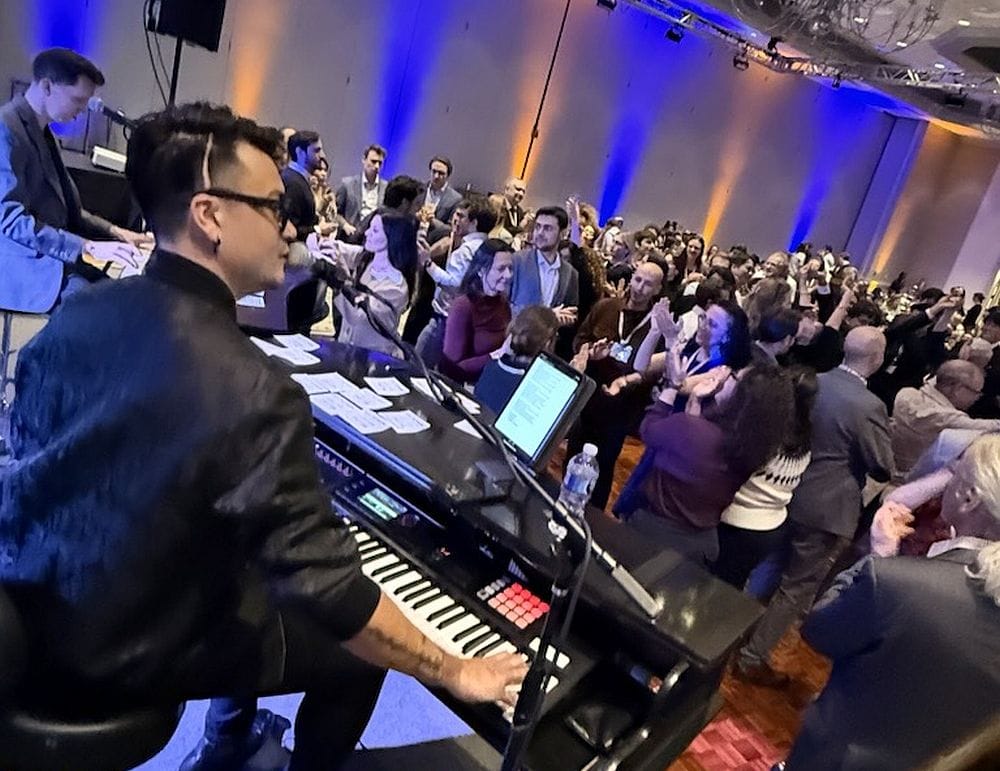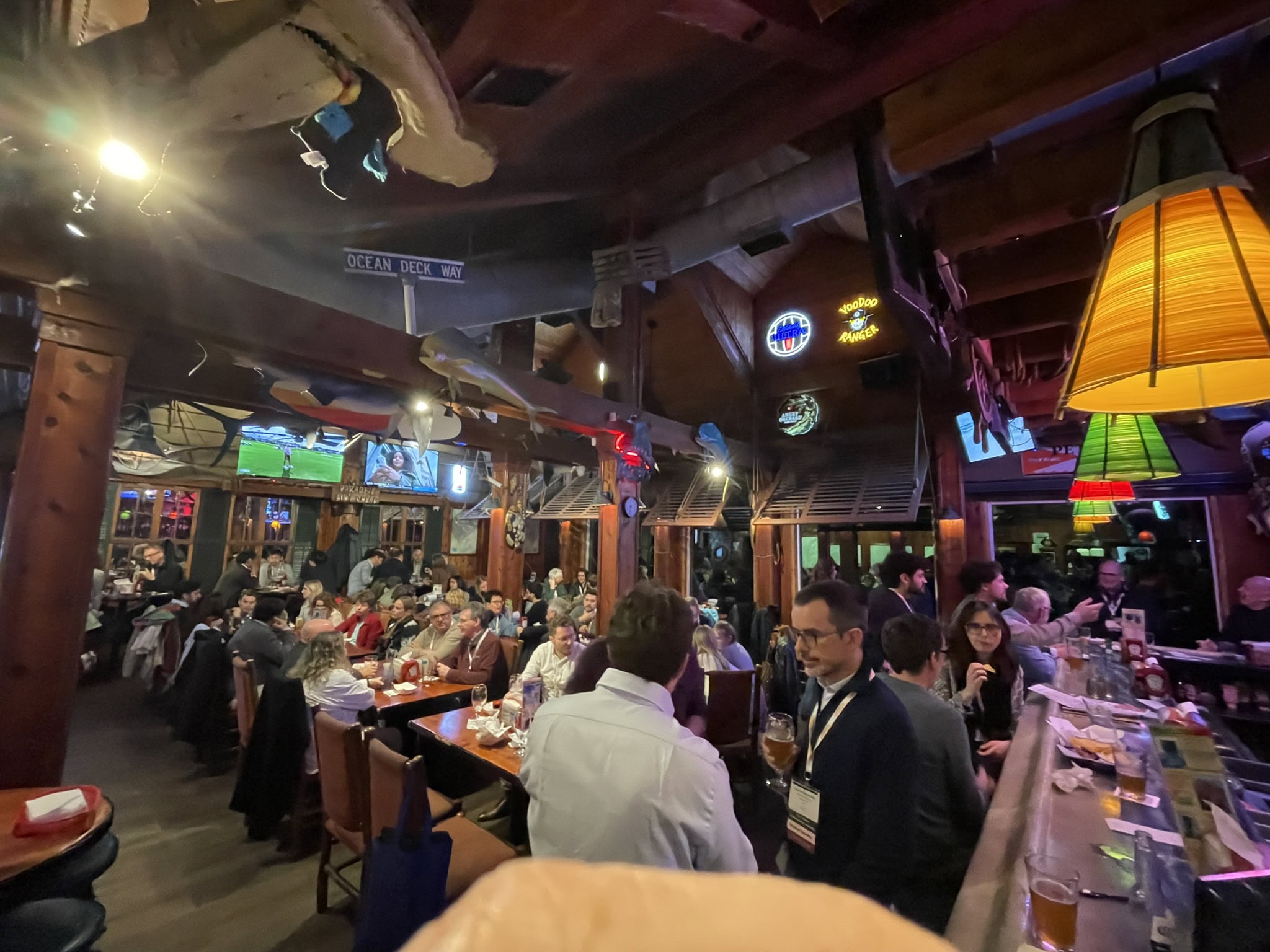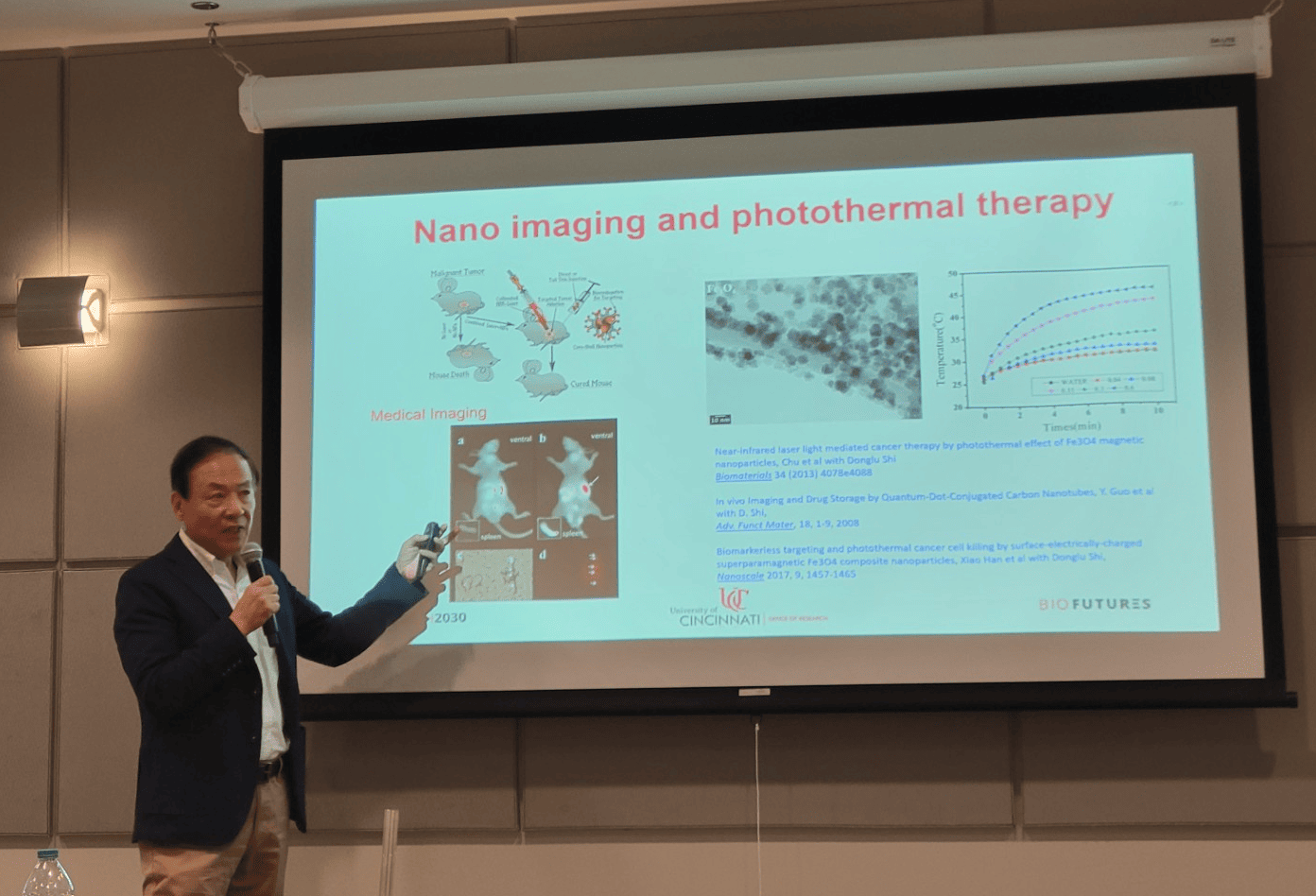
[Image above] Credit: Alfred University, S.K. Sundaram
ACerS Fellow S.K. Sundaram has accomplished a lot in his 20+-year career.
When he arrived in the U.S. from India in 1990 as a graduate student at Alfred University, he already had a technical degree in ceramic engineering. And as soon as he settled in at Alfred to begin his studies, he joined ACerS in 1991.
“I was aware of ACerS before I came to the U.S.,” he explains in a recent interview. “I would access the Bulletin and read the articles, but back then I never thought I would end up in the United States.”
“At Alfred, everyone joins the American Ceramic Society,” he adds, smiling.
Since 2011, Sundaram has been Inamori Professor of Materials Science & Engineering at the Inamori School of Engineering, The New York State College of Ceramics at Alfred University, where he teaches and mentors students and secures funding for sponsored research. Prior to coming to Alfred, he spent 16 years at Pacific Northwest National Laboratory where he was chief materials scientist in the Energy & Environment Directorate.

Sundaram teaches ceramics, glass, and materials science and engineering at the New York State College of Ceramics at Alfred University. Credit: Alfred University, S.K. Sundaram
Sundaram earned his Ph.D. at Georgia Institute of Technology before he joined PNNL. “Between Alfred University and Georgia Tech it was a good educational experience,” he recalls.
His career reflects a significant number of achievements that include nearly 200 technical presentations, 115 publications, 33 technical reports, seven patents, and more than 30 awards.

When he’s not in class, Sundaram conducts and leads cutting-edge funded research at Alfred University. Credit: Alfred University, S.K. Sundaram
And while he was busy accomplishing all of that, he was immersing himself in various ACerS activities. Sundaram’s early ACerS experience was mainly in attending meetings, he recollects. But he eventually realized he enjoyed the networking and wanted to get more involved in organizing events.
Sundaram joined the Nuclear & Environmental Technology Division right after joining ACerS, where he organized symposia and became NETD chair after holding other Division offices. He also was session chair, contributor, and presenter for many of the sessions.
“I like networking with a lot of people at meetings,” he says, “and I especially liked the organizing part of it.”
Sundaram says he attends all of the Division meetings, including the Society’s Annual Meeting. He also attends what he refers to as the “special” meetings, such as MCARE 2018.
ACerS recognition and rewards
As he “climbed the volunteer ladder” and participated in ACerS and NETD activities, Sundaram earned recognition along the way. He earned Best Paper Award for the NETD. He also earned the D.T. Rankin Award for exemplary service to the Division. Sundaram (a team member) took first place in the ceramographic competition, earning the Roland B. Snow Award. He was eventually elevated to Fellow status in 2006.
Since he became a member, Sundaram has witnessed the giant strides ACerS has made to become a more global organization. “It’s great that the Society has been reaching out internationally to a broader audience,” he notes. “It makes me feel good that we’re getting more international recognition.” He became a Lifetime Member a couple years ago because of the value he found in joining ACerS.
And what advice would he give to professors and students who are considering joining ACerS?
“ACerS has helped me a lot,” he says. “The biggest reward is that you get a lot in return for the membership fee you pay. You get to meet and learn from a lot of experts and industry people. I always encourage my students to join.
“It also helps in finding a job,” he says referring to an important advantage for students. “You get the immediate benefit of having a network to meet people—which is more important than getting a job.” In other words, Sundaram suggests that networking can eventually lead to a job.
And when he gets recognition from the Society, his employer notices. Sundaram says there is an unwritten benefit of being an ACerS member. “It’s important for the employer because they look at my involvement as a big accomplishment,” he says. “And our employer recognition goes up,” he adds, referring to the recognition and exposure he receives from his ACerS awards and volunteer involvement.
“The biggest reward besides the networking is getting recognized for accomplishments,” he says. “And becoming a Fellow was definitely an honor,” he humbly adds. “I never imagined I would be a member, let alone become a Fellow.”
Author
Faye Oney
Spotlight Categories
- Member Highlights


